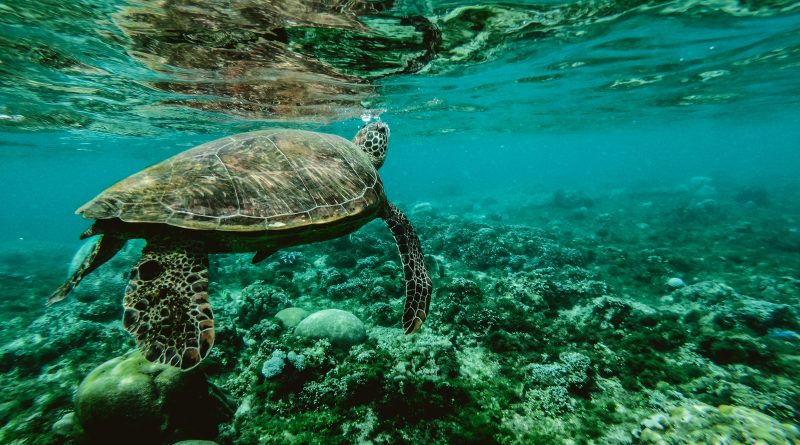30 New Grants to Protect our Environment, Coral Reefs and Marine Ecosystems
Coral reefs intrigue us as we explore the mysteries of the deep, but do people really think about the effects current business practices are having on them and how it impacts our ecosystems?
Due to numerous oil spills in recent years as well as factors such as overfishing, intensive boating, recreational impacts, and land-based sources of pollution the ecosystems of our coral reefs and aquatic environments are in danger worldwide.
Recent reports indicate that 58 to 70 percent of coral reefs around the world are directly threatened by human-associated activities. Government organizations, foundations, and NGOs such as the National Fish and Wildlife Foundation (NFWF) provide environmental grants to protect coral reefs from destruction, conserve and restore rivers, watersheds, waterways, and other natural habitats.
Various environmental and conservation-oriented foundations have responded to the alarming decline in both the quantity and productivity of the world’s coral reefs and marine ecosystems through multiple conservation initiatives. These aim to improve the management of these aquatic environments in addition to increasing public awareness of the dangers they’re facing and what can be done to reduce threats to coral reefs, watersheds, and rivers in the U.S. and around the world.
In addition to focusing on the coral reefs, foundations and NGOs like the National Fish and Wildlife Foundation and it’s partners have collaborated in a major effort to boost populations of imperiled wildlife in the Gulf of Mexico, Chesapeake Bay, San Francisco Bay, Long Island Sound and along US and international coastlines.
Key conservation strategies for coral reefs include:
- Reducing primary threats such as land-based sources of pollution from agricultural runoff, sewage outfall, and erosion from bare soils, and reducing functional reef species through unsustainable harvest
- Increasing the use of measurable goals, objectives and coral health thresholds in management planning
- Increasing the management effectiveness of Marine Protected Area networks through management training and community engagement
This URL will get you to the keyword search for ecosystem when logged into GrantWatch as a MemberPlus+ We found 33 grants today (the number will vary because new grants are added daily and past due grants are archived) to protect our environment, coral reefs, marine ecosystems and wildlife.
Grants to USA and International Individuals, Nonprofits,and Agencies for Projects to Protect Coral Reefs, Deadline: 05/09/2019
Grants starting at $40,000 to USA and International organizations, individuals, and agencies for projects to improve the health of coral reefs and their related marine ecosystems worldwide. Funding is intended for projects that mitigate the factors that are damaging coral reefs in order to protect and conserve this important natural resource.
Some grants are available for socially conscious entrepreneurs and innovators to create new methods, approaches, technologies, and products such as the one below:
Grants to USA Nonprofits and For-Profits to Address Environmental and Social Needs, Deadline: 04/30/19
Grants to USA nonprofit and for-profit organizations for innovative solutions for a wide variety of environmental and social challenges. Programs must align with the following three focus areas: the environment, heritage conservation, and social justice.
The prize has funded twenty wildly creative solutions to social and environmental challenges, ranging from high-tech efforts to restoring imperiled coral reefs, to the nation’s first farm labor trust. Each awardee takes a visionary approach to a societal need, working within one or more of the Fund’s three program areas:
- The Environment: Protecting natural resources and reducing the impacts of climate change.
- Heritage Conservation: Conserving the places that communities care about most.
- Social Justice: Supporting just alternatives and reforms to the criminal justice and immigration systems.
In addition, there are conservation grants such as this to address the issues related to the Delaware River Watershed.
Aquatic oriented conservation grants give priority to projects that address one or more of the following strategic program areas:
- Sustain and enhance fish and wildlife habitat restoration and conservation activities.
- Improve and maintain water quality to support fish and wildlife, as well as habitats for fish and wildlife and drinking water for people.
- Sustain and enhance water resource management for volume and flood damage mitigation improvements to benefit fish and wildlife habitats.
- Improve opportunities for public access and recreation in the basin consistent with the ecological needs of fish and wildlife habitats.
To date, the National Fish and Wildlife Foundation has supported projects for coral reef conservation totaling over $43 million in 39 countries. These funds have assisted broad-scale coral reef management by establishing new techniques for assessing and monitoring reef health and new fishery management models.
The NFWF’s marine and coastal programs focus on restoration and management of habitats for fish, sea turtles, corals, marine mammals, seabirds, shorebirds, and other key species. Some incentives include promoting the development of sustainable fisheries, supporting actions to reduce sedimentation and enhance water quality to restore the health of marine ecosystems such as coral reefs.
Find environmental and conservation grants to protect coral reefs, our marine ecosystems, land, wildlife and more on GrantWatch.com.
About the Author: The author is a staff writer for GrantWatch
Sources:

